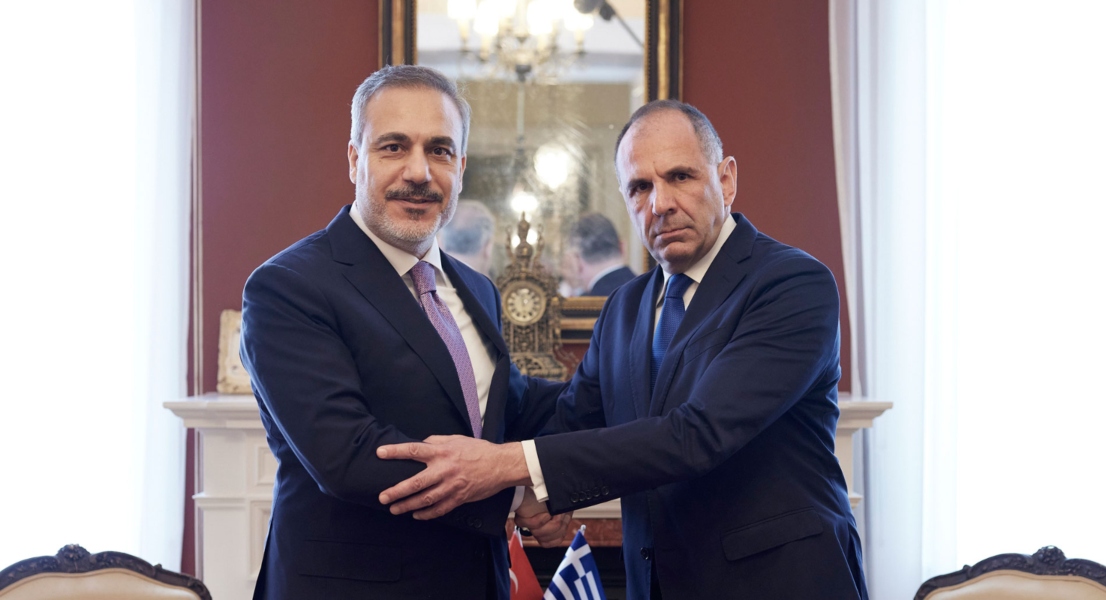Turkish Foreign Minister Hakan Fidan sent sharp and provocative messages to Athens in an interview with TGRT Haber, accusing Greek political leaders of using anti-Turkish sentiment as “aspirin politics” for domestic political gain.
According to Fidan, the recent statements by Greek Foreign Minister Giorgos Gerapetritis and the Prime Minister function as panic-inducing and cheap politics, especially on critical issues such as hydrocarbon explorations south of Crete and the progress of the electricity interconnection cable with Cyprus.
“Cheap Politics and Conditioned Reactions”
Fidan described the continuous focus on Turkey in Greek politics as a “red flag”, arguing that Greek politicians exploit it to bolster their image:
- “Whenever they have a problem, there is always a statement from Dendias.”
- “This is cheap politics that generates geostrategic costs.”
- “The theory of conditioned response, as seen historically, must be addressed.”
The reference to Nikos Dendias underscores the Turkish view that Greece uses foreign policy as a tool for internal political gain and legitimacy.
Energy and Security Tensions in the Eastern Mediterranean
Fidan’s statements take place amid rising tensions in the Eastern Mediterranean, with emphasis on:
- Greek hydrocarbon exploration activities
- The Cyprus-Greece electricity cable project
- Turkey’s strategic moves in Libya and Benghazi, where Fidan hinted at a possible personal visit
Fidan stressed that Ankara does not hesitate to respond to Greek initiatives, making it clear that it systematically monitors Greek actions and strategic choices.
Geostrategic Implications
Fidan’s rhetoric reveals a diplomatic strategy combining pressure, warnings, and guidance, aiming to challenge the Greek political scene and prevent further actions in the Eastern Mediterranean.
Greece is called to balance between:
- Domestic political use of foreign policy
- Strategic development of energy and infrastructure projects
- Maintaining a strong diplomatic stance vis-à-vis Turkey
The emerging dynamics highlight the delicate balance in the Aegean and Eastern Mediterranean, where every statement carries geostrategic consequences.
Source: pagenews.gr
